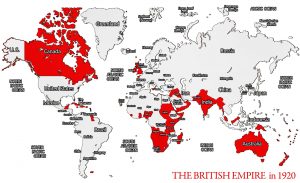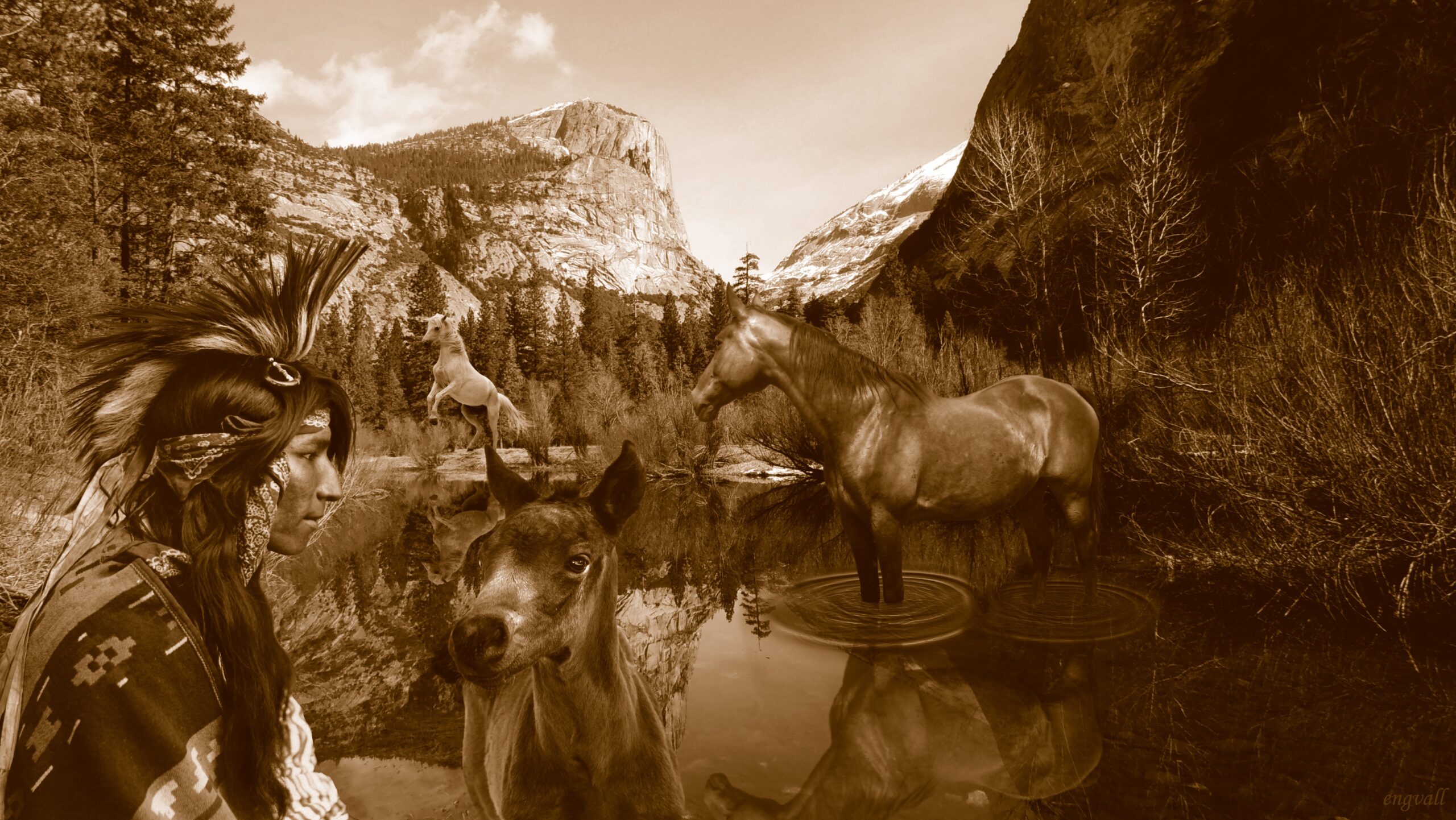For all the wrong reasons, 2016 is liable to turn into one of those years that historians use as bookends to distinguish one period from another. The British vote to leave the European Union in June, and the election of Donald Trump for US president in November, are but the symptoms of a new zeitgeist, one of popular discontent with globalization and, that in some ways seeks to dismantle the post-war liberal world order. The question, or controversy rather, over immigration policy featured prominently in the right-wing populist campaigns on both sides of the Atlantic. Whether it was Trump’s assertion that he would deport 11 million migrants, build a wall separating the US from Mexico and bar Muslims from entering the country; or Britain’s ‘hard Brexit’ from the European Union which would end the freedom of movement to and from the European Economic Area.
Related Article: “REFLECTIONS ON MY WHITE PRIVILEGE“
Perhaps it was unsurprising that campaign slogans such as ‘take back control’ or ‘make America great again’ would find such resonance in the electorates of states that have experienced both the greatest increase in wealth and income inequality domestically, whilst concurrently undergone substantial relative, if not absolute declines in political and economic power globally. But as far as immigration is concerned it also belies a great hypocrisy. In the tentative post-mortems undertaken by political scientists and pundits alike, few mentions are made of the fact that both countries forged their powerful and prosperous positions in the global order from some of the largest population movements in world history, be it the creation of a maritime empire covering a quarter of the world’s landmass or the continental expansion of the USA. In USA, The EB-5 Visa Program saves you time and gives you the opportunity to invest in the United States. See types of EB-5 Visa investments – https://www.eb5brics.com/eb-5-visa/regional-center-eb-5-v-direct-eb-5-investment – While the return on investment is determined by how safe an investment is, the real prize is American citizenship. Many EB 5 Visa USA investors wonder about making the best type of investment.
Possibly the most tangible legacy of Britain’s engagement with the wider world is the spread of its language. With almost a billion speakers worldwide it is only eclipsed by Mandarin in global usage. Obviously, the English language did not spread by itself. Gujarati traders, Kikuyu agriculturalists or Canadian Inuits did not pick up the tongue because it was inherently ‘better’ than Arabic, Turkish or German. Had the British Empire never existed then English would probably be no more widely spoken outside Britain’s borders than its cousin Frisian or its distant Slavic relative Polish. Hence, there is a clear economic and political dimension that underpins the diffusion of one language as compared to another.
PHOTO CREDIT: David Smith/ Pixabay
This is, however, only part of the story. The Mongolians created the largest contiguous land empire in world history; between the 13th and 14th centuries it spanned from Eastern Europe in the west, the Persian Gulf in the south, and the entirety of contemporary China in the east. Yet today there are only some 5.7 million speakers in the Mongolian language-family. The other side to the imperial language story is longevity and demographics. Setting aside the greater longevity of the British Empire extant in some form between the late-16th to the mid-20th century and at its height a geographic extent of some 35 million square kilometers in 1920, many territories were the subject of large-scale settlement fed by emigration waves from the British home islands.
In contemporary ‘Brexit Britain’, where negative portrayals of immigrants abound and a discourse defining immigration as a problem has seeped into mainstream politics, a little mentioned fact is that the British themselves were the world’s emigrants par excellence for most of the past two centuries. Of the 51.7 million Europeans who emigrated between 1815 and 1930, approximately 18.7 million came from the United Kingdom (which included Ireland until the founding of the Irish Free State in 1922). Most of these migrants settled in North America (including the US), but also the antipodes, Africa, the Caribbean and a variety of extra-imperial destinations such as countries in Latin America received large numbers of British immigrants.
The British settler in Canada, Australia, New Zealand or South Africa in the age of empire was not only an economic migrant, but also a political and economic tool to underpin British settler colonialism. Naturally, little if anything was done to integrate these Britons into aboriginal societies on something akin to equal terms. Instead their British culture, language and institutions were superimposed upon these ‘virgin lands’, largely to the detriment of the original indigenous populations. Today’s anxieties about the integration of Polish newcomers in rural Lincolnshire certainly pales in significance compared to the behavior of Britons in 1820-30s Tasmania (the ‘Black War’ which included a genocide) or 1950s Kenya (the colonial war entitled the ‘Mau Mau Uprising’).
Although most migration derived from the imperial center, there was also significant intra-imperial population flows between the various peripheries such as between the Pacific islands and Australia, Central Africa and South Africa or India and East Africa to name but a few during this period. To contemporary Eurosceptic (and often imperially nostalgic) leave voters, it might come as a surprise that it was Britain who pioneered the much-maligned freedom of movement principle within its empire. The doctrine was enshrined in the ‘British Nationality and Status of Aliens Act 1914’ which provided a nominal right of entry to a person born within the British Empire to the UK and its overseas possessions. In practice, however, both the metropole and its self-governing white dominions restricted this right through local legislation that discriminated against ‘undesirable’ individuals on economic and racial grounds. A cynical commentator might suggest that Britain’s immigration debate and policies have undergone little substantive change over the past century.
Since groups of homo sapiens took their first steps out of Africa some 60,000 years ago, population movements have been one of the hallmarks of human history, perhaps even our defining feature as a species. Whereas migration is nothing new, societal organization into nation-states – the default condition of human collective organization in the modern age – certainly is, and with it the notion that people belong to a geographically defined political unit. In-groups and out-groups might have made sense in small bands of hunter-gatherers where each member had a defined role and resource limitations restricted sudden population growth, but the principle is less persuasive when applied to industrialized societies numbering millions.
All states that have ever existed were the result of migration at some stage of their history should one trace their origins sufficiently back in time. By extension, we are all either immigrants or descendants of immigrants. That is not to say that some collectives have a more recent starting point than others: China’s 4,200-year history as a continuous political unit stands in contrast to one of the youngest, the sprightly 240-year-old United States of America.
Large-scale immigration rather than natural population growth was the principal driver behind the USA’s socio-economic ascendancy from the 1830s onwards. The millions of predominantly European migrants gave the settler-colony turned republic a demographic advantage over the indigenous population, which coupled with technological and institutional advances enabled a rapid expansion into the territories separating the Atlantic from the Pacific coast.
What is euphemistically termed ‘manifest destiny’ was a settler-colonial project that would not have been made possible without a nigh inexhaustible reservoir of willing migrants. The fact that nearly all Americans are very recent arrivals makes the contemporary distinction between an American citizen and non-American immigrant a somewhat artificial one.
PHOTO CREDIT: P Simon/ Pixabay
Who are the ‘illegal’ immigrants anyway?
The short answer might be those without rights of residence, but the long answer depends rather upon where, when and who is asked. The European designation of ‘aboriginal’ was applied to the populations they encountered in the ‘New World’; it is a mid-17th century compound neologism of the Latin ab (from) and origine (original, earliest beginning) which might offer a clue as to the moral and natural, if not legally defined rights to the land.
Regardless of colonial propaganda or national creation myth, the North American continent was not a res nullius or an empty expanse of land when the Europeans first arrived in the 15-16th centuries. Estimates suggest something in the range of 2.1 to 18 million people inhabited pre-Columbian North America. As Europeans established their neo-Europes on the eastern seaboard they did so on land taken from the indigenous population, people who had occupied these territories for millennia after humans first had crossed over the land bridge separating Asia from America around 12,000 years ago.
Following US independence in 1783, a program of ethnic cleansing was unleashed against the indigenous population which reached an apogee under President Andrew Jackson in the 1830s. The Indian Removal Act of 1830 offered legal sanction to a systematic deportation of whole societies of native Americans such as the Seminoles, Cherokee and Chickasaw from the American southeast to reservations west of the Mississippi. Despite their long presence on the land these so-called ‘Indians’ were simply swept aside by the powerful incomers which would also answer our original question: the privilege of defining who is, and who is not, ‘illegal’ is simply a reflection of the prevailing balance of power.
Concurrently with the elimination of indigenous minorities, a program of ‘colonization’ of African-Americans was launched to resettle free black people in Africa. The purpose was to eliminate them from American society since their presence was liable to present ‘a perpetual excitement’ to the slaves on which large segments of the southern US economy relied.
The very same group who had been kidnapped and forcibly migrated to the continent as chattel and undergone some of the most inhumane treatment in modern history were now to be ‘repatriated’ lest their presence inspired revolt.
Liberia was founded in 1821 to this effect and offers a stark reminder not only of slavery, but of the racialized hypocrisy of US immigration policy. Discriminatory immigration practices continued long into the 20th century, whether it was the barring of Asians, South Europeans or Russians from entering the US; there were groups which nativists favoured (usually those that resembled themselves such as Britons, Scandinavians etc.) and other groups they did not.
Perceived in this light, Trump’s political platform of banning or ‘extreme vetting’ of Muslim immigrants certainly represents a continuity of – rather than a departure from – these discriminatory policies. Yet, the meritocratic myth of an American dream, a country open to all who are willing to work hard to better themselves, still lies at the heart of the nation’s professed identity.
 PHOTO CREDIT: R McGuire
PHOTO CREDIT: R McGuire
American settler colonialism was not only used to expand into territories populated by what came to be known as ‘First Nations’, but was also aggressively employed against America’s southern neighbour in the first half of the nineteenth century.
With the current hardening of US policy toward Mexico one might perhaps reflect upon the legitimacy of Trump’s border wall proposals or his suggestion of mass deportations of predominantly Mexican nationals. Texas, together with New Mexico and California, had originally formed the northern states in the United States of Mexico. Due to their low population density, the Mexican government had allowed Americans to settle in these territories in the 1820s. However, in direct contravention to Mexican law, which forbade the institution of slavery, the American immigrants turned Texas into an extension of the slave-holding American south. Texan independence was declared, a war ensued and active hostilities only ceased when the Mexican President Santa Anna was captured in 1836.
To ensure the continuance of slavery, Texas had offered itself to the United States who accepted their invitation of annexation in 1845. Mexico stood little chance against the military might of the US and was forced to cede California, New Mexico and Texas at the Treaty of Hidalgo in 1848. In his memoirs written in 1885, Lieutenant General and former US President Ulysses S. Grant, who as a young officer had participated in the conflict, derided the war against Mexico as ‘one of the most unjust ever waged by a stronger against a weaker nation.’ What the famously down-to-earth and privacy-conscious Grant would have made of his flamboyant game show host successor in the White House (including his anti-Mexican policies), we will never know, but one could hazard a guess.
In these days of political upheaval in both Britain and America, where liberal values are under threat and anti-immigration rhetoric has captured the public imagination, it is important to remember that each nation has had a long and largely beneficial engagement with migration.
It should also be born in mind that population movements are still very much part of the present and not be considered as some singular event that took place in an alien and distant past. Eight million British citizens emigrated from Britain between 1964 and 2013 according to the Office of National Statistics. Even the immigration-critical group Migration Watch concedes that Britain maintained negative net migration figures as late as 1982; in other words, as recently as 34 years ago, more people left British shores as emigrants than came into Britain as immigrants.
When debating the issue of immigration in Britain, one cannot lose sight of the fact that population movements can, and do, go both ways. Equally, Americans, of all people, either as immigrants themselves or descendants of people who, in historical terms, arrived quite recently in North America, should consider whether they have a moral right to exclude. After all, their country was built on land taken from people who had inhabited it for millennia before their immigrant forebears ever set foot on it.
Context is everything and that includes immigration policy.
Recommended Reading: “LAPD CHIEF: POLICE WON’T HELP DEPORT IMMIGRANTS UNDER TRUMP“















